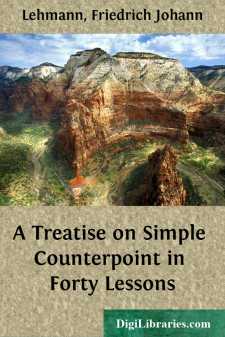Non-Classifiable
- Non-Classifiable 1768
Non-Classifiable Books
Sort by:
A WOMAN'S PART IN A REVOLUTION I hope I may be able to tell the truth always, and to see it aright according to the eyes which God Almighty gives me.—Thackeray. I. Totsey the terrier lay blinking in the hot African sun, while Cecilia Rhodes, the house kitten, languished in a cigar box wrapped about with twine to represent bars of iron. Above her meek face was a large label marked 'African...
more...
HEREas manye histories of olde & auncient antiquitie, and also al godly & Christiã writers most playnely consêt together, and agree in this, that dignitie, riches, kinred, worldly pompe, and renoume, doo neither make men better, ne yet happiar, contrarie too the blynde & fonde iudgement of the most part of menne: but by the power and strength of the mynde, that is, learnyng, wysedome,and...
more...
CHAPTER I. To produce a good balance staff requires more skill than to produce any other turned portion of a watch, and your success will depend not alone on your knowledge of its proper shape and measurements, nor the tools at your command, but rather upon your skill with the graver and your success in hardening and tempering. There are many points worthy of consideration in the making of a balance...
more...
SIMPLE COUNTERPOINT LESSON I Counterpoint is the art of combining two or more melodies of equal melodic individuality. In simple counterpoint all parts must remain in the same relative position to one another. The Cantus Firmus is a given melodic phrase that is to receive contrapuntal treatment, that is, one or more parts are to be added above or below it. The Counterpoint is any part other than the...
more...
by:
Hugh Smith
INTRODUCTION. As two of the four meals that form our daily subsistence are chiefly composed of tea, an enquiry into what kind is the most salutary must be as necessary as it may prove interesting and beneficial; for, on the choice of proper or improper tea must greatly depend the health or disease of the public in general. To this may be attributed the constitution being either preserved from that...
more...
INTRODUCTION Richard Sherry’s A Treatise of Schemes and Tropes (1550), a familiar work of the Renaissance, is primarily thought of as a sixteenth-century English textbook on the figures. Yet it is also a mirror of one variation of rhetoric which came to be called the rhetoric of style. As a representative of this stylistic school, it offers little that is new to the third part of classical rhetoric....
more...
by:
David Hume
INTRODUCTION. Nothing is more usual and more natural for those, who pretend to discover anything new to the world in philosophy and the sciences, than to insinuate the praises of their own systems, by decrying all those, which have been advanced before them. And indeed were they content with lamenting that ignorance, which we still lie under in the most important questions, that can come before the...
more...
by:
George Berkeley
PREFACE What I here make public has, after a long and scrupulous inquiry, seemed to me evidently true and not unuseful to be known--particularly to those who are tainted with Scepticism, or want a demonstration of the existence and immateriality of God, or the natural immortality of the soul. Whether it be so or no I am content the reader should impartially examine; since I do not think myself any...
more...
by:
Clayton Edwards
BUDDHA About five hundred years before the birth of Christ a mighty king reigned in India over the land of the Sakyas, from which the snowy tops of the Himalaya Mountains could be seen. His name was Suddhodana and he had two wives called Maya and Pajapati; but for a long time they bore him no children, and the King despaired of having an heir to his throne. Then Queen Maya bore a son and after he was...
more...
by:
Ben Hecht
Preface It was a day in the spring of 1921. Dismal shadows, really Hechtian shadows, filled the editorial "coop" in The Chicago Daily News building. Outside the rain was slanting down in the way that Hecht's own rain always slants. In walked Hecht. He had been divorced from our staff for some weeks, and had married an overdressed, blatant creature called Publicity. Well, and how did he...
more...











